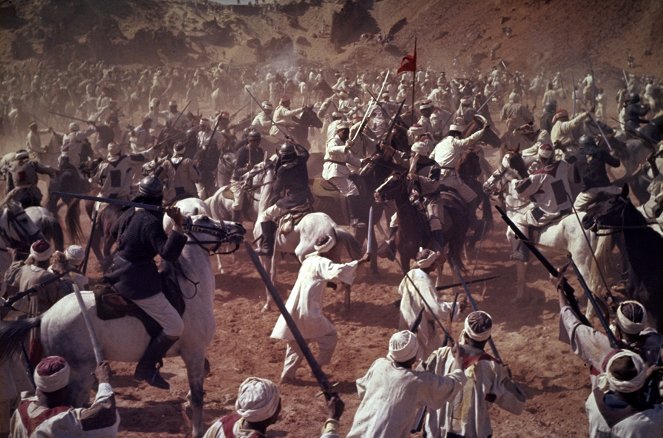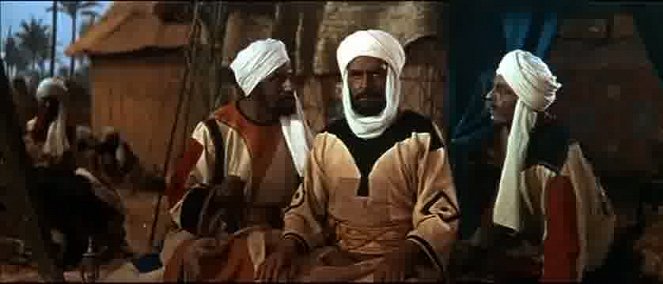Regie:
Basil DeardenDrehbuch:
Robert ArdreyKamera:
Edward ScaifeMusik:
Frank CordellBesetzung:
Charlton Heston, Laurence Olivier, Richard Johnson, Ralph Richardson, Alexander Knox, Johnny Sekka, Michael Hordern, Nigel Green, Hugh Williams (mehr)Streaming (1)
Inhalte(1)
Sudan 1884: Zögernd schickt der britische Premierminister Gladstone den eigenwilligen General Gordon nach Khartoum, um 13.000 ägyptische Soldaten und britische Offiziere vor dem Angriff des grausamen Islamistenführers, genannt der Mahdi, zu retten. Die Evakuierung scheitert. In Khartoum beginnt eine zehnmonatige Belagerung. Gordon versucht vergeblich, Gladstone zu einer Hilfsaktion für die sterbende Stadt zu bewegen. In opulenten Bildern und pointierten Dialogen gelang Basil Dearden eine spannende und zeitlos-kritische Abrechnung mit der Kolonialpolitik. (ARD)
(mehr)Videos (1)
Kritiken (1)
It describes in an excellent way, using behind the scenes plotting, how not to intervene and more importantly how not to lose face officially so the whole world would not know. It captures series of events preceding the fall of Khartoum and one of the most interesting figures in British colonial history. These aspects are fine, on the contrary, they are along with the camera the strongest point. The problem, however, is that it largely relies on the relationship between the two sides of the same coin; two extraordinary men who determine the future of (not only) Sudan, whose attitudes and actions are strictly based on their firmly entrenched different faith, which defines them significantly. And this interesting conflict between Christian and Muslim even today (or especially today) is completely ruined by the unfortunate portrayal of the self-proclaimed Mahdi. Due to Olivier's busy schedule, he appears only in a few scenes that were shot in the studios in England afterwards and not in locations in Egypt like the rest of the movie, which is both obvious and disturbing. The second thing is that the respected leader of the people is represented by an African, lisping, dirty typical white man. The third issue is that they either forgot or were too afraid to say to Olivier that this is not a theater performance, so he theatrically recites while others "normally" play and last but not least is that there are only a few scenes with him, so it does not match the space prescribed by the screenplay. So, in fact, he is mentioned in almost every dialog but rarely appears on the screen. At times, it seems really ridiculous and almost like Cimrman's Hamlet "if Mahdi was here now, he would tell you…" It's a pity, because with more dignified Mahdi, Khartoum could have been an even better movie. Even so, it is an impressive and interesting historical film, that is for sure.
()
Galerie (71)
Photo © Metro-Goldwyn-Mayer Studios


